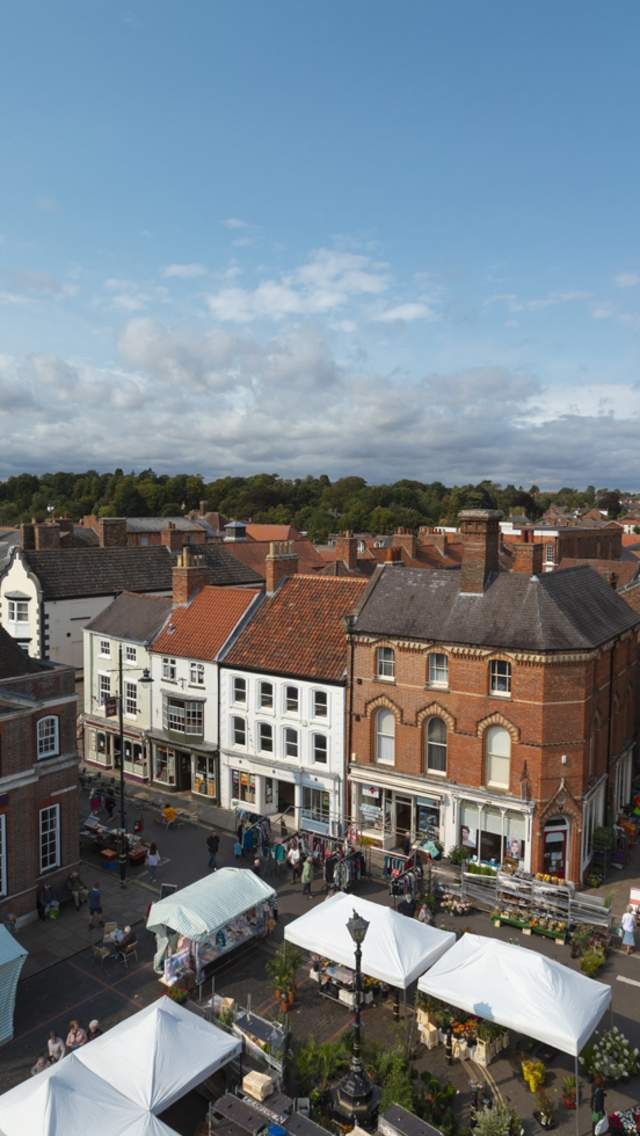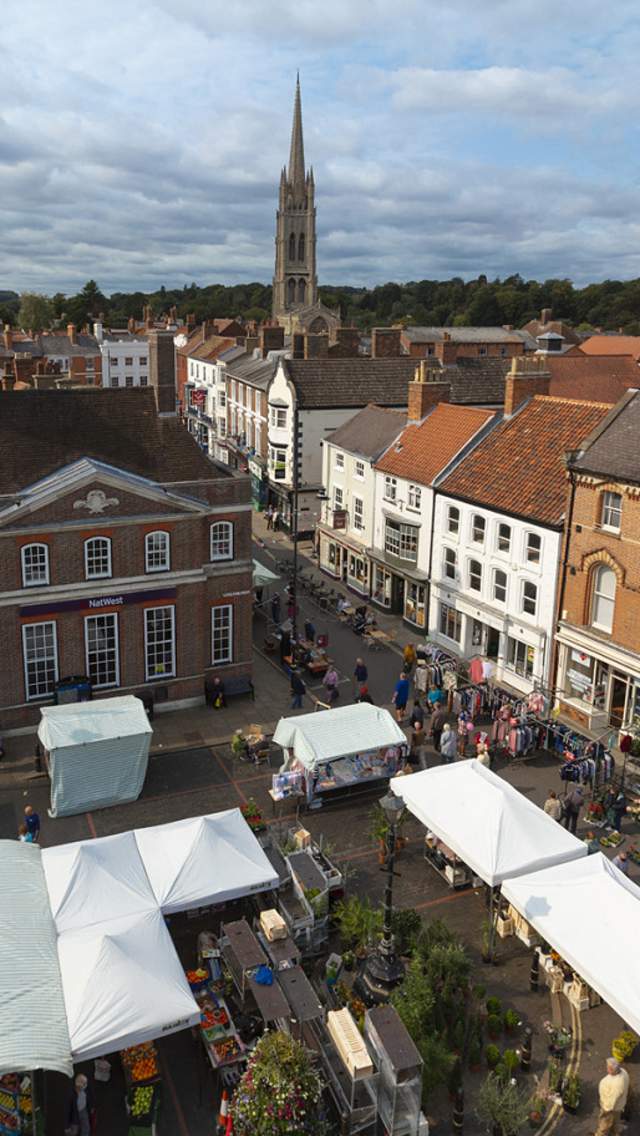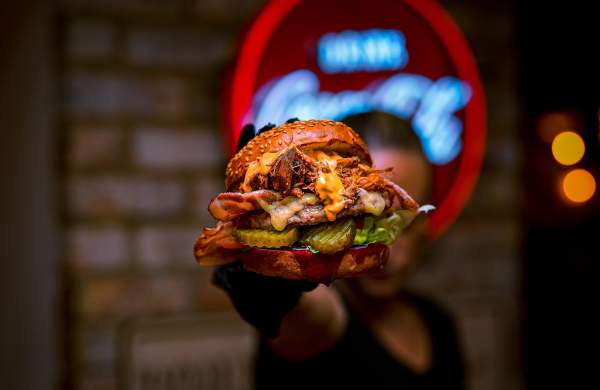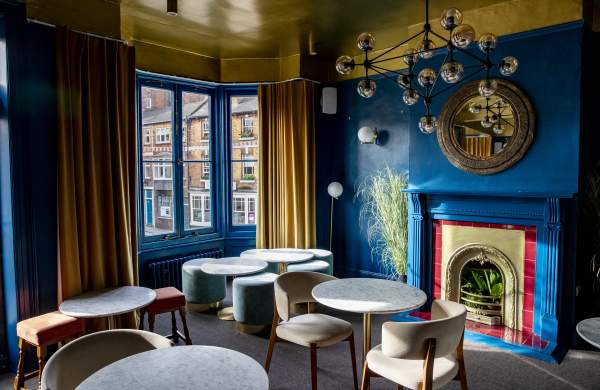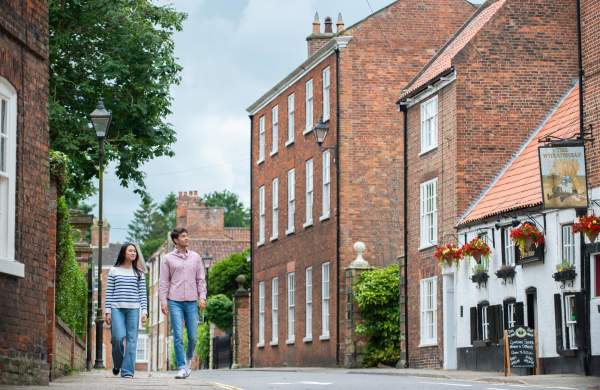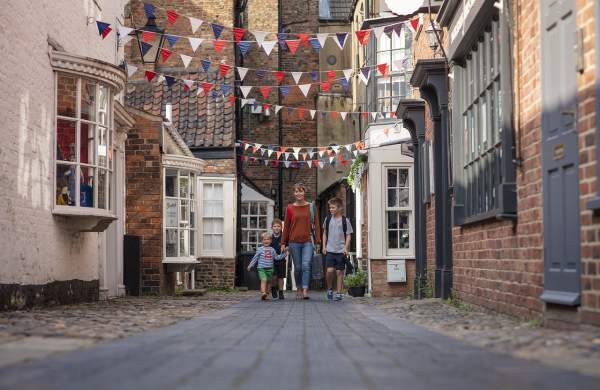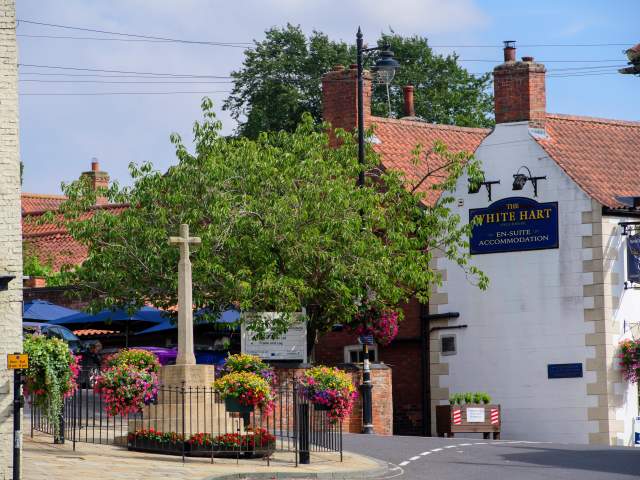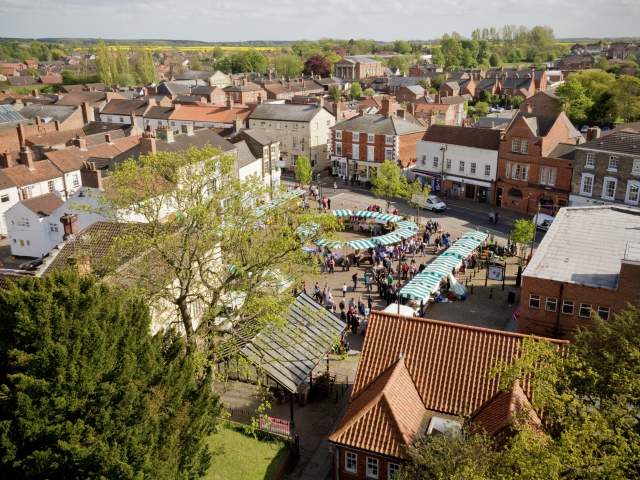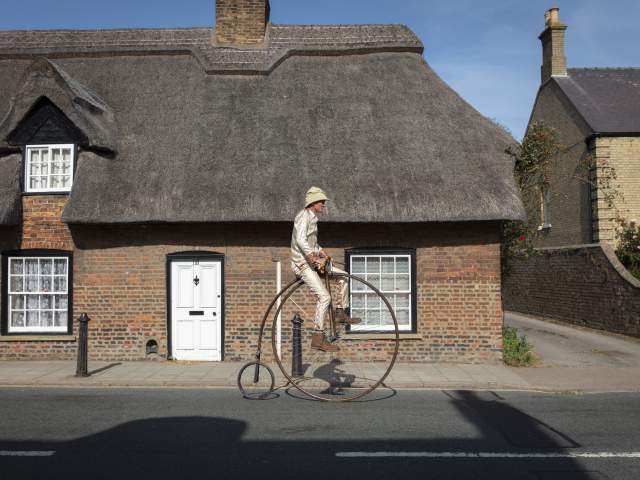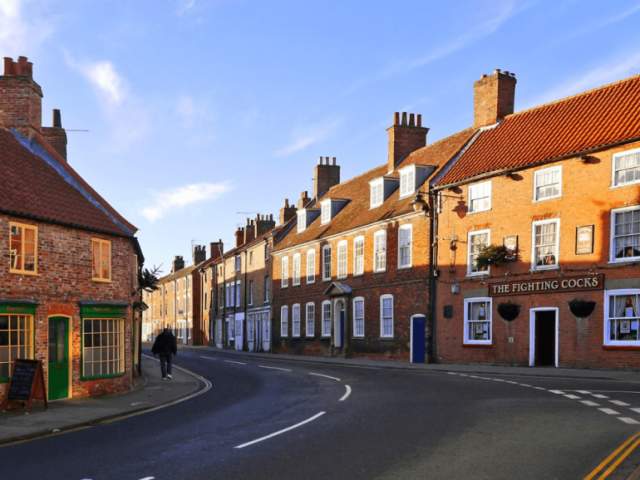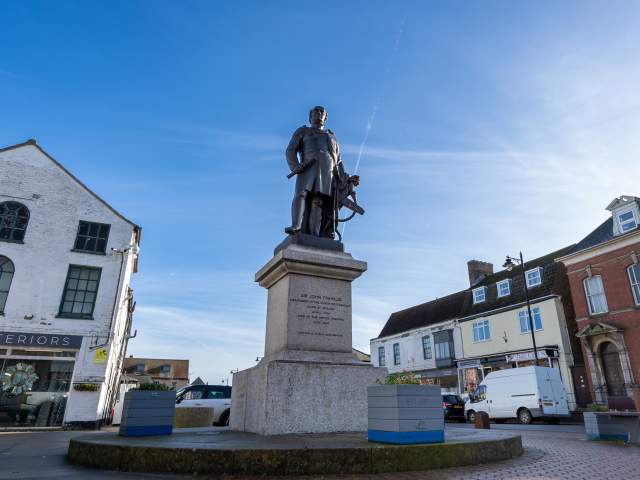Louth
Situated at the foot of the Lincolnshire Wolds, Louth is a picturesque market town, with a wealth of history. Known as the ‘Capital of the Wolds’, this bustling town is best known for its vibrant markets, beautiful architecture and thriving food scene.
Independent retailers and restaurants are in abundance, and the town has become a haven for foodies. If you’re keen to sample some of Lincolnshire’s famous local produce, Louth boasts a variety of options. Hailed as a ‘food mecca’ by the Hairy Bikers, you will find an abundance of specialist producers here, and plenty of places to sample the goods.
Markets have taken place in Louth since the 10th century, and the town continues to honour this tradition today. There are weekly markets on Wednesdays, Fridays and Saturdays, as well as specialist craft, food and farmers’ markets once a month. Showcasing the region’s finest produce, these popular events attract traders and visitors from across the county.
Louth’s prosperity as a historic market town is evident from its architecture. Over the years, the architectural charm of the town has been carefully protected, and the buildings here provide a fascinating insight into the history of the area. With a medieval church, Gothic mausoleum and both Georgian and Victorian housing, there are plenty of hidden gems to discover.
The Lincolnshire Rising
In October 1536, Louth was at the centre of the Lincolnshire Rising. This religious rebellion occurred when a group of Roman Catholics took a righteous stand against Henry VIII’s dissolution of the monasteries.
When local vicar Thomas Kendall heard of Henry VIII’s plans to seize all Catholic wealth, assets and land, he delivered a fiery sermon in St James' Church in Louth. When word spread, an estimated 22,000 people gathered across the towns of Horncastle, Market Rasen and Caistor. The rebels marched across the Wolds, taking the approaching Royal Commissioners hostage along the way.
When the number of protestors swelled to around 50,000 the group descended on Lincoln Cathedral. After occupying the cathedral for just a couple of days, Henry VIII ordered the group to disperse. The King dispatched the Duke of Suffolk, along with an army, to quell the uprising. The majority of protestors dispersed before any blood was shed, but several of the ring leaders, including Thomas Kendall, were apprehended and later executed.
A blue plaque on St James' Church marks the site of the initial uprising, and the 1 October is now known as Lincolnshire Day.
Food & drink in Louth
The offering of food and drink in Louth is amongst the best in Lincolnshire. Renowned for its independent shops, delis and restaurants, the town is a haven for foodies.
Places to stay in Louth
You will find plenty of places to stay in the market town of Louth. From townhouses to manor houses, there are all sorts of beautiful abodes to choose from.
Things to do in Louth
A bustling market town, a haven for foodies and a hotspot for history, you will find an abundance of things to do in Louth, the ‘Capital of the Wolds’.
Shopping in Louth
Explore a variety of shops in Louth from local producers and butchers to gift shops and clothing stores.
Explore Wolds market towns
Caistor
Nestled on the northern edge of the Lincolnshire Wolds, the market town of Caistor harbours a wealth…
Market Rasen
Laced with history, the picturesque town of Market Rasen is located on the western edge of the…
Alford
The charming town of Alford is situated on the edge of the Lincolnshire Wolds, just a few miles from…
Spilsby
Steeped in history, Spilsby is a compact but complex town in the Lincolnshire Wolds. Explore the…


